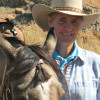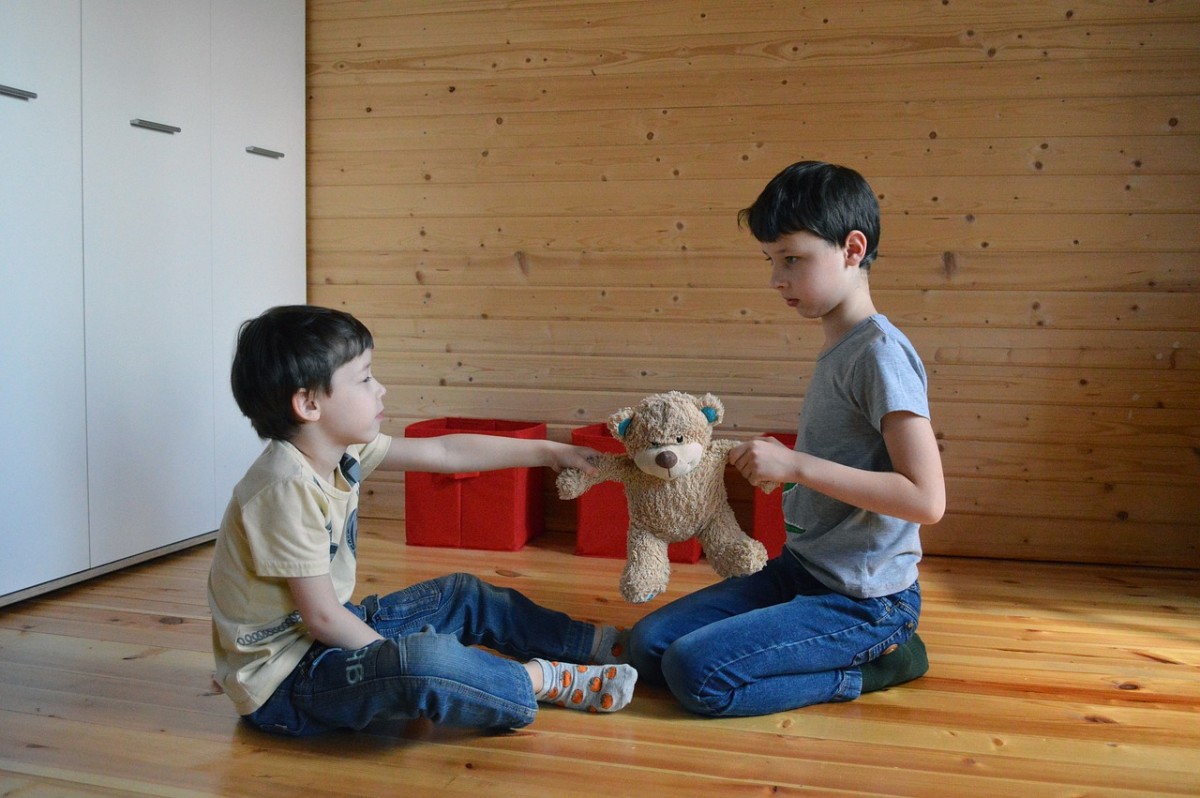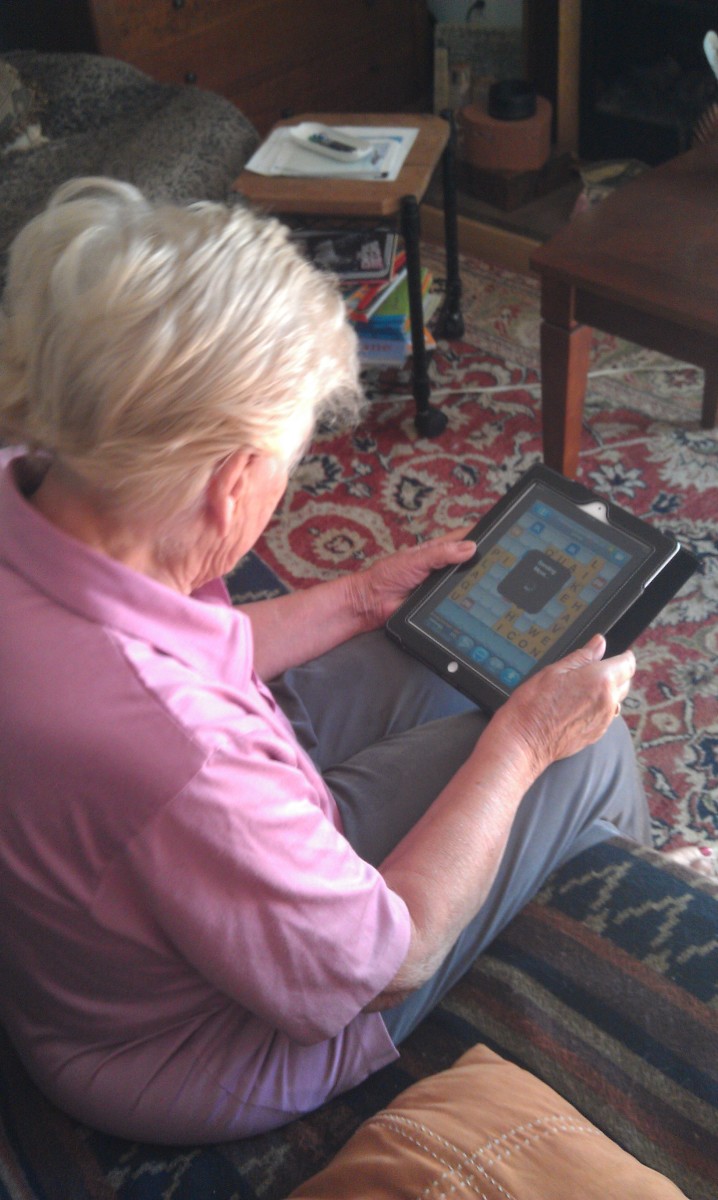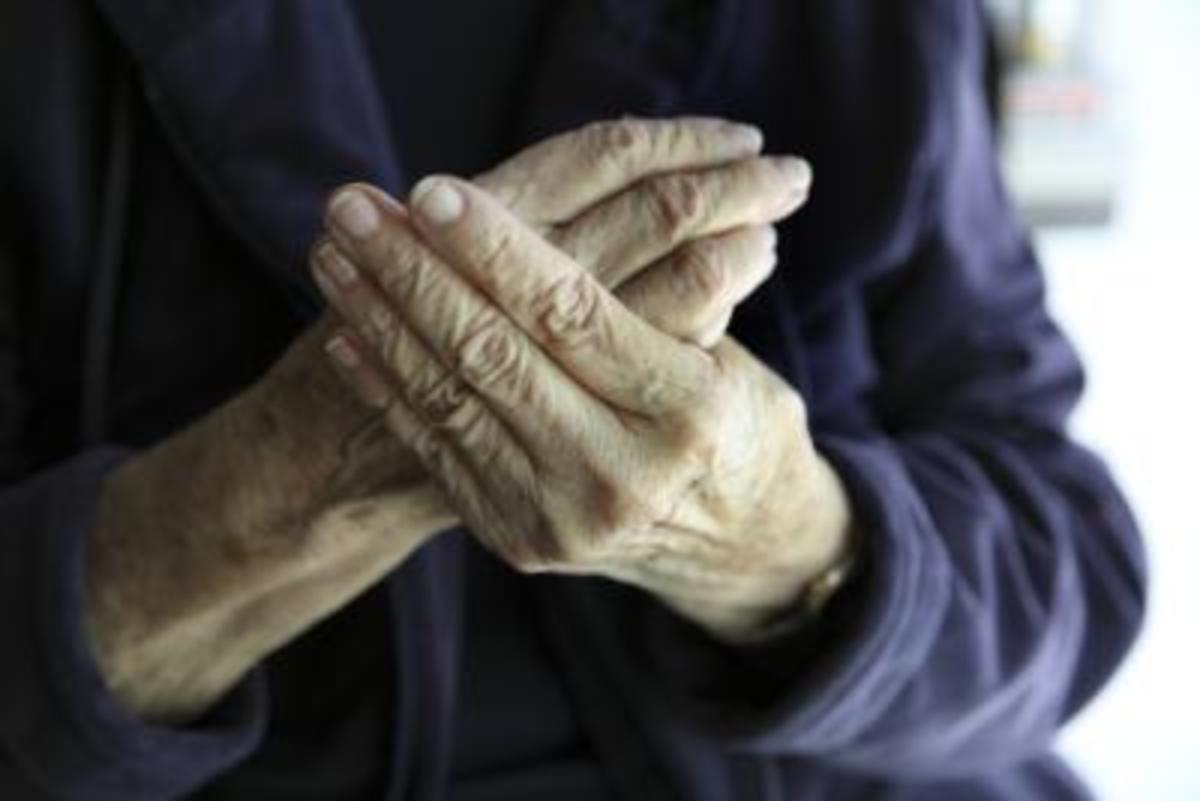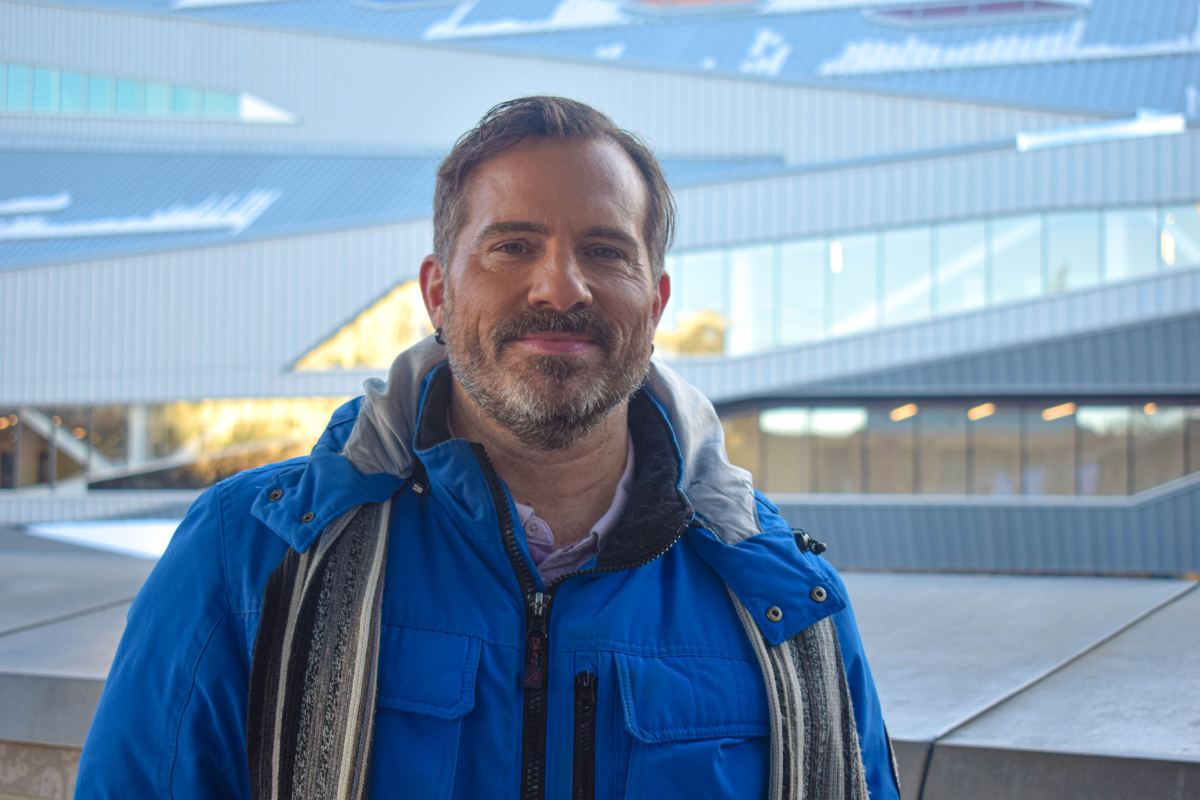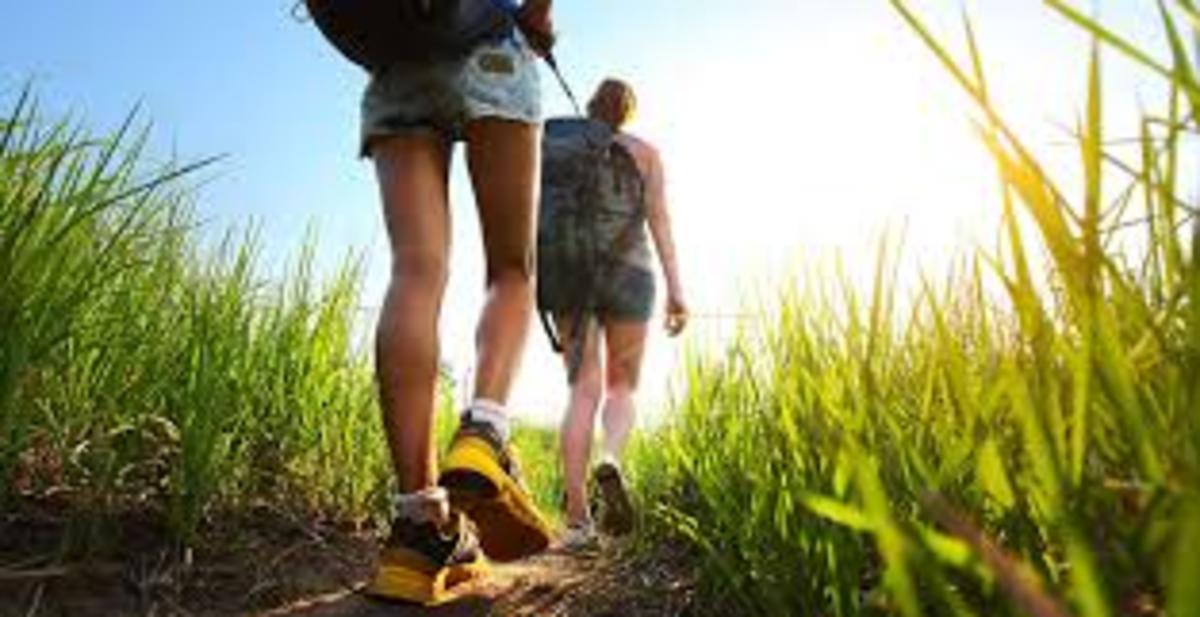Strategies to Reduce Isolation in the Elderly
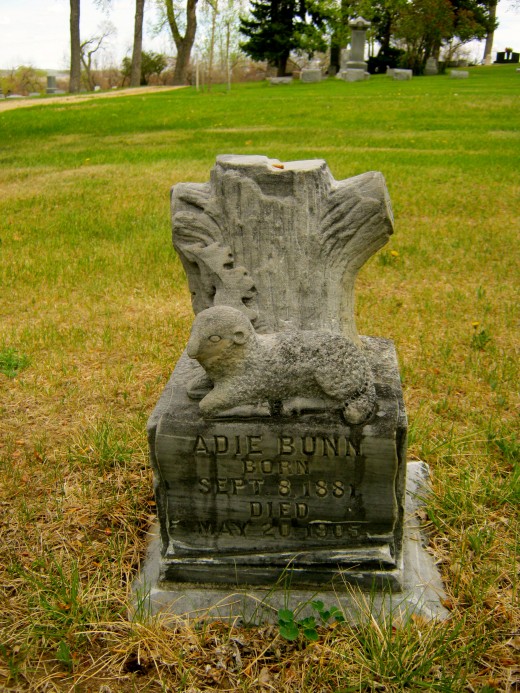
Black Lines in an Address Book
Although my mother is not near the 100 mark yet, at 85 she is the last of her long-time friends from her youth to be alive. She has outlived her husband, her siblings, and all of her close cousins and acquaintances. One day, I found the address book she'd used for years in the trash. Nostalgic, I removed it and took a look at it only to find the sad reality of names crossed out with black marker and a margin note in ball-point indicating the date they'd died.
A couple of years ago, a witty author released a book for adults that was formatted as if it was a child's picture book. The title and its accompanying cartoon have always stayed with me for the poignancy of the situation: a simply-drawn dinosaur with a sad expression stood alone. The cartoon was captioned, "All my friends are dead."
That moment holding mom's address book reminded me of the cartoon. How sad to see all those familiar names blacked out. I can't even imagine the impact on my mother each time she took that Sharpie pen out of the drawer. It was a dramatic reminder of how easily isolated elderly people can feel as their long-time acquaintances -- and others who have been through the same world events -- pass away, leaving only younger people around them.

Forging New Friendships
As friends and family are replaced by a black line in the book, the need for human contact doesn't vanish with them. It's important to continue to build new relationships.
Mom has forged friendships with neighbors that are ten to 20 years younger than herself. She's reconnected with the once-estranged nieces and nephews whom she dearly loves but who reside in Mom's country of birth. She's strengthened the relationships with nieces from my father's side of the family (whom live locally). She joined Facebook and got in touch with people she'd lost touch with. (That particular exercise was not without its own challenges, but it brought Mom back into contact with friends and family and the children of friends and family whom she loved.)
I had a much-loved neighbor, Jaque, who was in her 80's. When I moved in, Jaque drove up in her little pick-up truck and knocked on my door, greeting me with a huge smile and an infectious laugh. She drove me up and down my new street, introducing me to the neighborhood. Jaque knew them all. Each time she saw someone moving into a house, she knocked on their door. I don't know that I've ever met someone as well-loved as Jaque; she was the heart-beat of our entire area. She made new friendships on a daily basis -- and she brought people together, an art in itself. Having lived here "before anyone else," as she put it, she was also the unofficial historian of the neighborhood. She told us the tales of living here in this desert place long before pavement extended to her driveway. She was the folklorist, the archivist, the keeper of tales.
Jaque's friendship was a great gift and a privilege. The very elderly may not realize how great this gift can be. Warmth never expires and it never goes out of style. Neither do the tales of "before" that many of us so enjoy hearing.
Dark Humor? Get it Here!
Maintaining the Ability to Laugh
If ever a sense of humor is important, it's when TMB Syndrome* is wreaking havoc on one's joints, senses and social circle. Mom often reminds me that getting old is not for sissies; neither is it for the humorless.
Mom has maintained a sense of humor that allows her to see the irony and dark humor in her situation. Our shared sense of humor has always been dark, admittedly, but it doesn't stop us from laughing together over wry one-liners. The other day I discouraged my mother from going out alone to watch the meteor showers. When she asked why not, I said, "What happens if you're out there at midnight in the dark and you fall?" She said, "Well, I'll just pick myself up and cry!" Jaque, my friend and former neighbor, used to introduce herself to my friends by saying with a grin, "I'm Jaque, Marcy's antique neighbor."
When I saw the book, "All My Friends are Dead," I called Mom to share some of the cartoon captions with her. We laughed together. We always do. Should the world crumble around us, we'll still, somehow, find humor in the situation … after we pick ourselves up and cry.
*TMB Syndrome: Too Many Birthdays.

Keeping Current
Mom recognizes the importance of staying in touch with current affairs, from politics to the latest movies. Mutual friends often comment to me, as if surprised, what an amazing conversationalist my mother is. "She's up to date on everything. She knows her politics!" Mom has never allowed herself to remain in the days of Whigs and Tories and Gunpowder Plots -- she stays actively abreast of local and national politics, international events, and book releases.
Although politics have changed, people's interest in them have not. The elderly may not be interested in Kimye's wedding (I guess my own age is showing in that area) but by staying well versed in things that matter in the news, they will always find someone interested in discussing or debating them. Conversation is key to relationships; keeping current is key to universal conversation.
A subscription to a comprehensive news magazine such as "The Week" is an excellent means of staying up to date on issues both national and international for those who aren't computer-inclined. For those elderly people, like my mother, who love the internet, signing up for Twitter and following key news sources, papers, magazines and political leaders is invaluable and easy. Those quick-burst news feeds make it so convenient to see what's going on in the world in a nutshell and can be tailored to a person's own interests and leanings. Since it is also interactive, it can afford another opportunity to feel connected.
Maintain Physical Contact
Many years ago I'd read a study in which elderly people cited "physical contact" as the thing they missed most since growing old. We don't realize how easily it vanishes; the hug between friends, the intimacy of sleeping beside another person, the occasional shoulder rub or squeeze of an arm may be gone abruptly with the death of a spouse or the long-distance move of a daughter. There's a non-sexual touch called "haptic" touching that is critical to our emotional well-being.
The elderly, if not afforded those brief, spontaneous moments of physical connection, might consider scheduling a massage by a therapist who specializes in geriatric massage on a monthly basis. Some massage therapists offer just back and shoulder rubs. For people such as my mother who suffer from osteopenia and the rounded back and shoulder, this can be a great pleasure without crossing the comfort lines that a whole-back massage might invade.
My mom relies on her small dog for a degree of physical affection that often is inaccessible to the elderly. She takes joy in petting him, spoiling him, feeling him sleeping against her, and in (most importantly) being needed by him. She often mentions how she loves feeling his warm little body beside her in bed; he's forever at her side. There's a reason why petting or cuddling with a cat or dog may lower blood pressure and offer a host of health benefits -- it's natural to want physical contact and affection, and it's natural to want to extend it to other living beings.
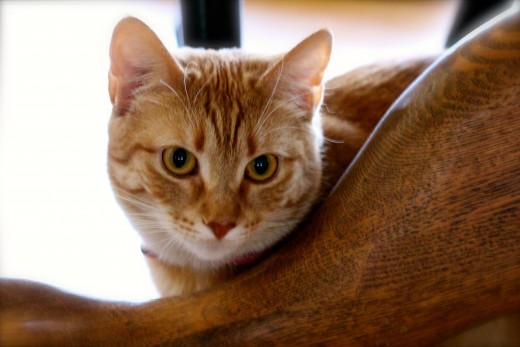
Adopt a Pet
A dog or cat is a godsend for the elderly, even if it is a visiting therapy dog at a hospital or home. In addition to offering companionship, a dog can offer more of a feeling of security -- and it can create new connections, as someone walking their dog is likely to meet fellow dog-lovers who stop to say hello. Dogs can be a bridge between people who normally wouldn't take time to talk. Any of us who have walked our dogs in public know how much of a magnet they are for others.
A few years ago I read a newspaper column memorializing a very lonely elderly woman whose beloved little dog had just died. She wrote a letter to a specific columnist who often covered human-interest stories; the columnist, known for his compassion, was an apt choice. The woman's letter was a suicide note. She said that only her dog had kept her alive and without him, she was too lonely to go on. It wasn't a letter about the deep and abiding grief we feel when we lose a pet we love, but about the fact the pet was the only creature left in her life that gave her love and companionship. That is a testament not just to the apathy of a society that often neglects our elderly, but to the value of a pet's affection.
Sadly, about the same time, I read about a local animal-rescue organization that I had often donated money to. The shelter had a policy of refusing to adopt animals to elderly individuals because they new owner might die (as if the rest of us all have warranties). A man in his 80's had been turned away several times when he tried to give an animal a home. It was also a heartbreaking article. An elderly person, desperately desiring an animal's companionship, was refused -- all whilst 44,000 animals per year were being killed at the county pound. I was disgusted. My donations have since gone to a shelter that recognizes the great value a pet can afford an elderly individual -- and even have special programs just for those owners (who are often some of the finest owners of all, as people who stay at home with their pets, spoil them rotten and devote much more time than many younger career-oriented people do with them. Additionally, many elderly people are more likely to adopt an older, even geriatric, pet rather than insisting on a puppy.)
Housesitting a small dog or pocket-pet for friends or neighbors can provide short-term animal companionship. It can even offer some extra pocket change, in some instances. One particularly feisty, active woman in her late 70's that I knew took in pets on a regular basis for traveling acquaintances. It was more than just the money -- she loved having animals around, but it saved her from the commitment and expense of keeping her own.
Similarly, if a person is living on their own still and is able to do so, fostering kittens for the local animal shelter is a valuable program that can be lifesaving not just for the kittens but for the elderly who crave to be useful. It is physically not terribly demanding. (If the individual has a tendency to be an animal hoarder, though, it is clearly not advisable to involve them in more animals.) Fostering animals affords a sense of worth … which leads us to the need to feel useful.
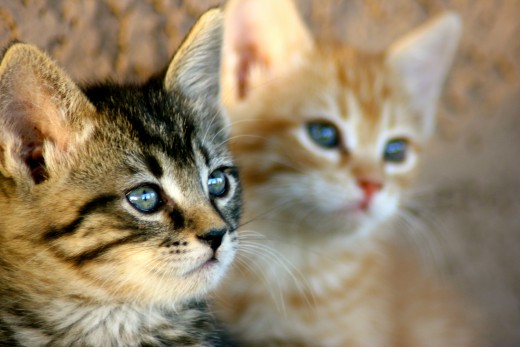
Do You Maintain Friendships with the Very Elderly?
Do you have a close friendship with someone over 80?
Remain Involved and Useful
Many of us (if not most) have an inherent need to be of use. For the very elderly, who are often treated with an almost-dismissive attitude by those around them, there's a risk of feeling useless. It's a complaint I've heard from many elderly friends: "I'm a useless old lady." Caretakers can unknowingly (and with good intentions) exacerbate this by doing everything for the elderly person rather than encouraging independence. Sometimes we unwittingly diminish our elderly family members by not letting them make something for us, or turning down their efforts to do something for us -- although we may sincerely be motivated out of concern for them and wanting to pamper them, we must realize they have a need to be of use as well.
This is why programs such as making quilts for premature babies, or making items for the deployed troops, are often popular with the elderly. They have just as much of a craving to give back as younger people do -- if not mores.
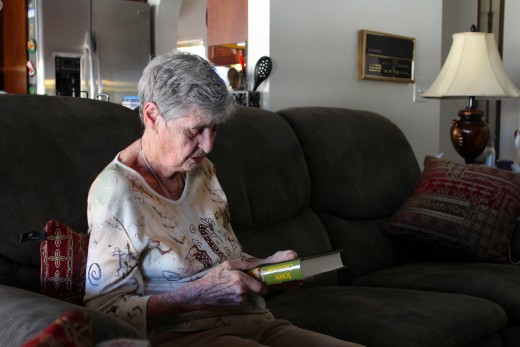
Be a Lifelong Learner
Mom has always been a capable artist. Competent in oil paint, acrylic, sculpture, pastels and charcoal, she has a knack for capturing expression and emotion in her subjects. When her lung disease made working with oil paints an impossibility, she switched to pastel paintings. Now, her palsy has made it difficult to work with pastel. I've encouraged her to return to sculpting.
She has always been committed to learning and still has that gleam of intellectual excitement when she grasps a new concept. Over the years she has taken non-credit classes in lost-gold jewelry making and multiple art courses. Taking a painting class in attendance with others was a fulfilling means of remaining involved and socially active.
Maybe art classes aren't for everyone -- but think of cooking classes, leatherwork, print-making, photography, languages, computer apps, recreational activities of all sorts. Colleges and universities have a number of free lectures open to the public; bookstores and libraries have poetry readings and book discussion groups. A great way of keeping in touch with local events is to subscribe to the email ads for Groupon or other group-savings on events; they'll often feature savings at museums, recreational facilities, and even beer-tasting at microbreweries.

Participate in Civic Groups or Churches
The church is more than just a place of worship; it also offers companionship, people with shared values, a support group and more. Many times a congregation member will even offer a weekly ride to church services to an elderly neighbor or friend who is on the way. A friend who is active in her own church recently mentioned to me how reassuring it was to have members of her church coming by and offering support and assistance when major life-events occurred -- at the birth of her children, the hospitalization of her husband, for example.
Other organized groups also provide companionship and assistance to fellow members. Whether it is a Kiwanis club or a book discussion group, joining a club or civic group can benefit the elderly. Such groups usually spawn friendships that extend beyond the meeting room.
Granny's Example
My grandmother lived to be 101. She employed many of the same methods of being involved until her arteriosclerosis, blindness and deafness wholly isolated her from all but that so-important human touch in the form of a held hand, a caress on the cheek, a rub of the shoulders. Her attitude was inspiring -- regardless of what physical or emotional challenge befell her, she responded with, "Well, I've never had diabetes before," or a similar statement, always delivered with a perky and wry tone. Even today we marvel at her irreverent and joyful sense of humor; even the hardened arteries didn't take that from her. The last time I saw Granny, my mother and I traveled to Canada for a final visit. My Mom was devastated when Granny didn't initially recognize her due to her impaired vision and hearing, but she gave Granny a huge smile as she held her hand. Granny laughed and said, "I know who you are, Betty. I recognize you by your teeth." To others it might seem an odd thing to say; to us, it was clear evidence that Granny was still alive and well -- it was her distinctive, quirky, wonderful sense of humor showing through.
My Granny rode in a hot air balloon in her 70's, was never hesitant to hop on my horse or my brother's motorcycle, and visited her much-loved England (where she was born) well into her 80's. I don't know that I'd call her feisty -- spunky was a much better word. She'd triumphed over much adversity but never allowed it to embitter her, nor did I ever see her angry. It served her well as she crossed each decade-marker of her life.
An Action Plan
The very elderly may do well to employ their own action plan. Some strategies that may help fend off the sense of isolation and irrelevance may include:
- Find aged-but-younger companions
- Continue to stay abreast of politics and to vote
- Treat themselves to a massage by a geriatric massage therapist monthly, because haptic touching is critical to feeling engaged
- Challenge themselves -- whether by reading good literature (as Mom does), learning a new art or revisiting an old talent
- Use the services of elderly-transport companies in the area to get out for the day
- Travel, particularly in organized tours that accommodate the elderly or handicapped
- Adopt or foster a pet or arrange for pet visits
- Create their own bucket list (it's never too late)
Copyright © 2014 MJ Miller
All rights reserved. No part of this article may be used without the express permission of the author. Links to this page, however, may be freely shared. Thank you for linking, liking, pinning, sharing, forwarding, tweeting, +1'ing and otherwise helping grow my readership. Most of all, thank you for reading!
